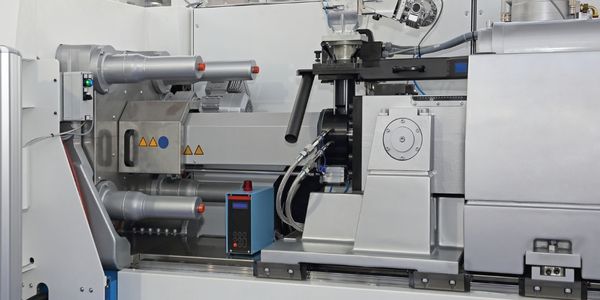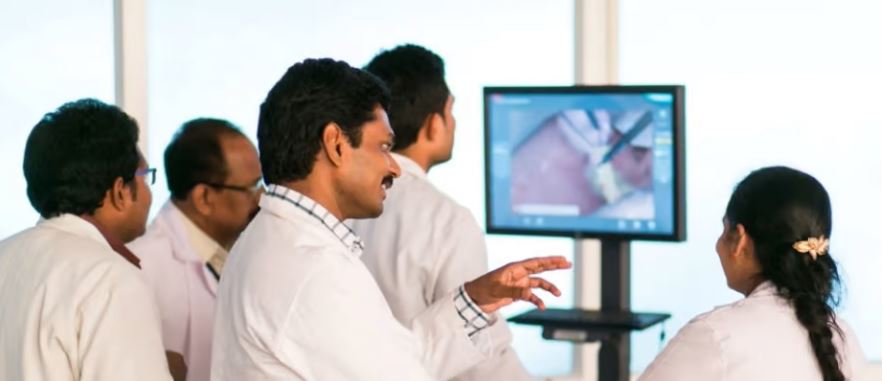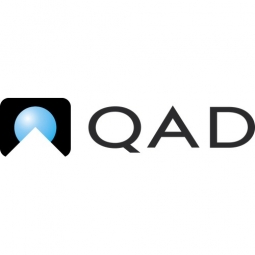下载PDF
CK Technologies: Leveraging QAD Explore for Continuous Improvement

技术
- 功能应用 - 制造执行系统 (MES)
适用行业
- 教育
- 塑料
适用功能
- 物流运输
- 质量保证
用例
- 添加剂制造
- 制造过程模拟
服务
- 测试与认证
- 培训
挑战
CK Technologies 致力于持续改进其所有业务实践。面对他们的小批量、高可变性业务的日常流程,这可能是一个挑战。
他们也是业内最早为每位客户提供车身颜色零件的公司之一,每年大约 1,400 种颜色,这些零件必须经过完美排序才能发货。
客户
长江科技,
关于客户
CK Technologies是北美商用重型卡车市场领先的热塑性塑料解决方案提供商。他们通过创新工程和与客户的密切合作,率先推出了许多业内首个塑料外部组件。 CK Technologies 是注塑成型保险杠、格栅、车顶整流罩和底盘裙板的市场领导者,提供大型注塑成型零件和组件。 CK 产品可以在世界各地的拖拉机驾驶室、公共汽车和大型卡车上看到。
解决方案
在每年的探索活动中,由客户、赞助商和专家组成的 QAD 社区齐聚一堂,进行信息交流、实践培训和激发讨论。探索的重点是学习、交流和启发。探索的具体好处包括:
- 40 多个范围广泛的会议和 60 多名演讲者的多样化议程,其中包括许多特定于制造的会议,可以帮助获得 APICS 继续教育学分
- 动手培训,深入研究如何优化业务流程的选定主题
- 有机会在一处与整个 QAD 社区的成员会面
- 访问 QAD 和同行公司高管,了解最新趋势以及如何规划未来
CK Technologies 现在每年有十多人参加探索。在旅行之前,该小组确定 CK 的探索时间表并决定参加哪些会议。他们还决定了参观解决方案博览会的最佳时间,这是所有探索赞助商在一个地方的聚会。然后他们在活动中召开每日团队会议,就每天收集的信息和网络进行协作
运营影响
数量效益
相关案例.

Case Study
Plastic Spoons Case study: Injection Moulding
In order to meet customer expectations by supplying a wide variety of packaging units, from 36 to 1000 spoons per package, a new production and packaging line needed to be built. DeSter wanted to achieve higher production capacity, lower cycle time and a high degree of operator friendliness with this new production line.

Case Study
Boiler Control System for Plastic Manufacturing Applications
Factory automation applications must be equipped to handle and monitor the myriads of information from attached devices. For plastic manufacturing applications, the boiler control system plays a critical role by gathering and regulating information to ensure production is accurate and smooth. In this particular case, the customer combines eight subsystems that include power meters, water meters, alarm output, displays, and I/O status to be controlled by several intelligent controllers with Modbus RTU interface. The Modbus TCP protocol is used for this application due to the distance. System Requirements: • Modbus serial to Modbus TCP translation • Multiple slaves/masters support • Automatic Modbus TCP response time detection

Case Study
Ascend Performance Materials Case Study
Ascend operations must access multiple software systems to manage day-to-day operations in an effective and secure manner. These systems generate large sets of data which contain critical information pertaining to management systems, planning and cost information in business systems and energy consumption. As a result, Ascend management was challenged with creating relevant reports reflecting performance measures in overall context of their operational process. The company’s previous process entailed collecting and analyzing data manually which was not effective, since the information collected was generated after the fact, and was too complex for collaborative use across the organization.

Case Study
Remake Enterprise-to-production System
The client was running a legacy material flow tracking system and wanted to replace the system with a more effective one as the system was increasingly expensive to maintain and support and also was not extendable. The client's IT landscape was filled with modern applications and it was difficult to interface the material flow tracking system with modern applications.

Case Study
IoT platform Enables Safety Solutions for U.S. School Districts
Designed to alert drivers when schoolchildren are present, especially in low-visibility conditions, school-zone flasher signals are typically updated manually at each school. The switching is based on the school calendar and manually changed when an unexpected early dismissal occurs, as in the case of a weather-event altering the normal schedule. The process to reprogram the flashers requires a significant effort by school district personnel to implement due to the large number of warning flashers installed across an entire school district.

Case Study
Revolutionizing Medical Training in India: GSL Smart Lab and the LAP Mentor
The GSL SMART Lab, a collective effort of the GSL College of Medicine and the GSL College of Nursing and Health Science, was facing a challenge in providing superior training to healthcare professionals. As clinical medicine was becoming more focused on patient safety and quality of care, the need for medical simulation to bridge the educational gap between the classroom and the clinical environment was becoming increasingly apparent. Dr. Sandeep Ganni, the director of the GSL SMART Lab, envisioned a world-class surgical and medical training center where physicians and healthcare professionals could learn skills through simulation training. He was looking for different simulators for different specialties to provide both basic and advanced simulation training. For laparoscopic surgery, he was interested in a high fidelity simulator that could provide basic surgical and suturing skills training for international accreditation as well as specific hands-on training in complex laparoscopic procedures for practicing physicians in India.





